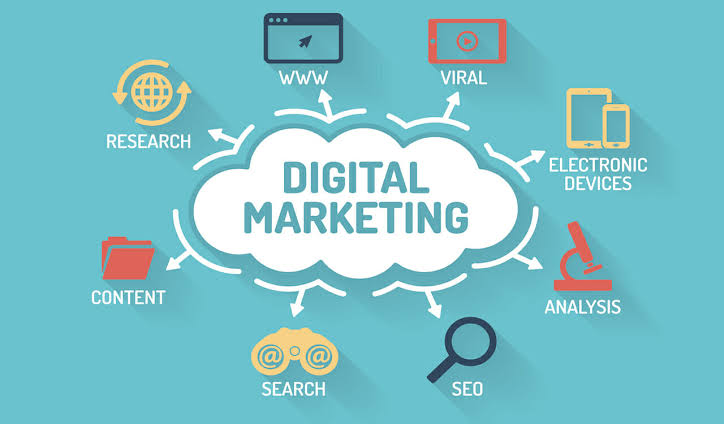Marketing
Unlocking The Power Of Customer Loyalty
In today’s highly competitive market, businesses strive to unlock the power of customer loyalty as a means of achieving success and sustainable growth. But what exactly does customer loyalty entail, and how can it be cultivated?
Customer loyalty refers to the likelihood of repeat business, and is a key indicator of a brand’s performance. It offers numerous benefits, including increased profits, free advertising through positive word-of-mouth and reviews, and a mutually beneficial relationship between the brand and the customer.
To build customer loyalty, businesses employ various strategies, such as personalization, transparency, and the implementation of loyalty programs. Moreover, factors such as industry superiority, a strong value proposition, and excellent service play a crucial role in fostering customer loyalty. Encouraging customer feedback and actively engaging with customers are also vital in this endeavor.
By unlocking the power of customer loyalty, businesses can establish long-term relationships with their customers, driving growth and ensuring their survival in the dynamic marketplace.
Key Takeaways
- Customer loyalty is important as it measures the likelihood of repeat business and can significantly increase profits.
- Building customer loyalty can be achieved through personalized communication, transparency, and rewarding loyalty with programs.
- Factors such as being the best in the industry, having a strong value proposition, and providing excellent service contribute to customer loyalty.
- Encouraging customer feedback, resolving issues promptly, and promoting customer engagement are also essential for building and unlocking the power of customer loyalty.
Importance of Loyalty
The importance of customer loyalty can be seen in its ability to drive repeat business, increase profits, generate free advertising through word-of-mouth, and foster reciprocal benefits for both the brand and the customer.
Repeat buyers, even if they are not big purchasers, are valuable as they contribute to the overall profitability of the business. Studies have shown that a 5% improvement in customer retention rates can lead to a significant increase in profits, ranging from 25% to 100%.
Furthermore, loyal customers serve as brand advocates, providing free advertising through positive reviews and word-of-mouth recommendations. This not only helps in acquiring new customers but also enhances the brand’s reputation and credibility.
Additionally, customer loyalty creates a mutually beneficial relationship, where customers receive personalized attention, rewards, and exclusive offers, while the brand enjoys increased sales and customer satisfaction.
Therefore, building and maintaining customer loyalty should be a priority for any business, as it directly impacts customer retention and overall business success.
Strategies for Building Loyalty
One effective approach to foster and strengthen customer loyalty involves implementing various strategies.
Personalized communication plays a crucial role in building loyalty. Sending personalized emails, such as birthday wishes, makes customers feel valued and appreciated. It creates a sense of connection and enhances the customer experience.
Another strategy is the effectiveness of loyalty programs. Rewarding loyalty with a customer loyalty program helps build a strong bond with customers. Card-based loyalty programs, like credit cards or Starbucks rewards, can be beneficial in incentivizing repeat purchases and increasing customer retention. Punch cards are also an easier way to reward loyal customers and encourage them to continue their patronage.
Furthermore, making loyalty easier for customers by storing their data simplifies the experience and enhances their loyalty.
By implementing these strategies, businesses can effectively unlock the power of customer loyalty.
Factors for Customer Loyalty
Implementing a combination of effective strategies and cultivating key factors can significantly contribute to fostering and strengthening customer loyalty, ultimately leading to substantial business growth and success.
Customer satisfaction plays a crucial role in building loyalty as satisfied customers are more likely to continue doing business with a brand. Providing excellent customer service, addressing customer concerns promptly, and resolving issues efficiently are essential in ensuring customer satisfaction.
Moreover, customer retention is another significant factor in cultivating loyalty. Implementing loyalty programs, personalized experiences, and rewards for repeat business can incentivize customers to stay loyal to a brand.
By focusing on these factors, businesses can create a positive customer experience that fosters loyalty, leading to increased customer retention rates and ultimately, long-term business growth.
Frequently Asked Questions
What are some common challenges or obstacles that businesses face when trying to build customer loyalty?
Common challenges businesses face when building customer loyalty include gaining trust, meeting customer expectations, providing exceptional service, creating personalized experiences, and maintaining consistent communication. Overcoming these challenges is crucial for long-term customer loyalty and business success.
How can businesses measure the effectiveness of their customer loyalty initiatives?
Measuring the effectiveness of customer loyalty initiatives can be done through key metrics such as customer satisfaction surveys, Net Promoter Score (NPS), and repeat purchase rate. These metrics provide valuable insights into the success of loyalty programs.
Are there any industries or types of businesses that are more successful in building customer loyalty than others?
There are certain types of businesses that excel in building customer loyalty compared to others. Key factors include being the best in the industry, having a strong value proposition, encouraging customer feedback, providing good service, and promoting customer engagement.
What are some innovative or unconventional strategies that businesses can use to build customer loyalty?
Incentive programs and experiential marketing are innovative strategies to build customer loyalty. By offering rewards and creating memorable experiences, businesses can incentivize customers to remain loyal and create a sense of freedom in their decision-making.
How can businesses effectively balance the use of technology and personalization in their customer loyalty efforts?
Finding the right mix between technology and personalization in customer loyalty efforts is crucial. Leveraging data for personalized experiences can enhance loyalty, but businesses must also ensure that human touch and connection are not sacrificed in the process.

